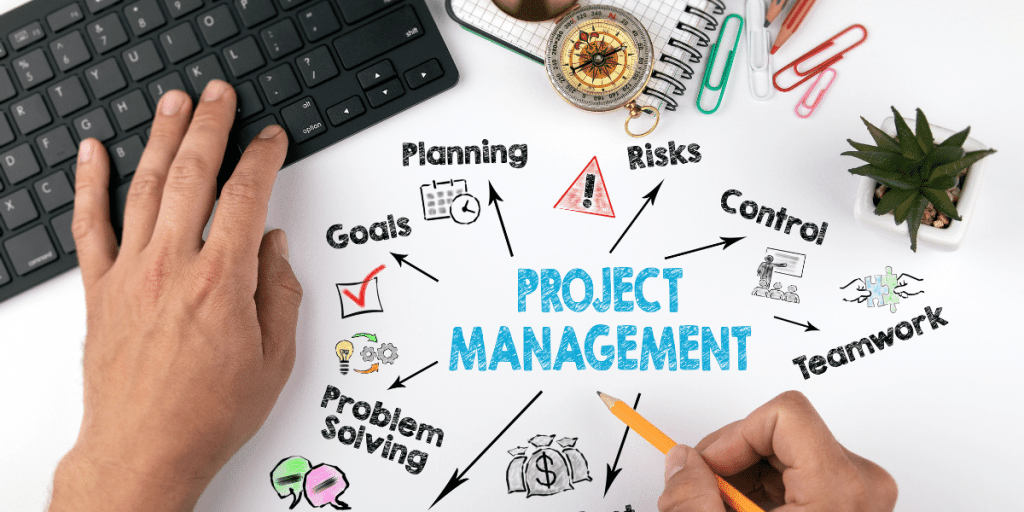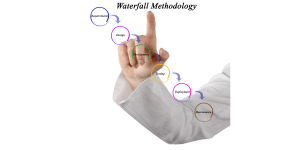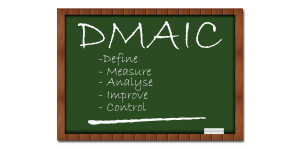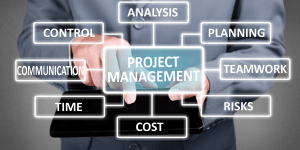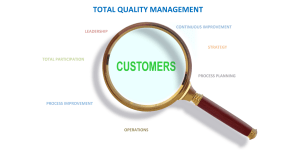Project management is the process of planning, executing, and controlling the work required to achieve specific goals and objectives within a defined timeline and budget. The success of any project depends on the effectiveness of its project management, which involves coordinating the efforts of a team of individuals to ensure that the project is completed on time, within budget, and to the satisfaction of all stakeholders.
In this blog post, we will discuss the key aspects of project management, including the project life cycle, the different types of project management methodologies, and the essential skills required to be an effective project manager.
The Project Life Cycle
The project life cycle refers to the various stages that a project goes through from initiation to closure. There are generally five stages in a project life cycle:
- Initiation: This is the first phase of the project life cycle, where the project is conceptualized, and the project goals, objectives, and stakeholders are identified. During this phase, the project manager prepares a project charter, which outlines the project’s scope, timeline, and budget.
- Planning: In this phase, the project manager develops a detailed project plan that outlines the project’s objectives, scope, timelines, resources, risks, and budget. The project plan serves as a blueprint for the project and provides a roadmap for the project team to follow.
- Execution: This is the phase where the actual work on the project is done. The project manager coordinates the work of the project team and ensures that the project is progressing according to the project plan. The project manager also manages any changes that may arise during the project’s execution.
- Monitoring and Controlling: In this phase, the project manager monitors the project’s progress and makes adjustments to the project plan as necessary. The project manager also identifies and manages any risks that may arise during the project’s execution.
- Closure: This is the final phase of the project life cycle, where the project is completed, and the project deliverables are handed over to the stakeholders. The project manager also conducts a post-project review to evaluate the project’s success and identify any lessons learned.
Project Management Methodologies
There are various project management methodologies that project managers can use to manage their projects effectively. Some of the most common project management methodologies are:
- Waterfall: The waterfall methodology is a traditional project management approach that involves a linear, sequential approach to project management. The waterfall methodology is suitable for projects where the requirements are well-defined and the project objectives are clear.
- Agile: The Agile methodology is an iterative approach to project management that focuses on delivering value to the customer through continuous improvement. The Agile methodology is suitable for projects where the requirements are dynamic and the project objectives are not well-defined.
- Scrum: The Scrum methodology is a subset of the Agile methodology that emphasizes teamwork, communication, and accountability. The Scrum methodology is suitable for projects that involve software development and other complex projects that require frequent updates and changes.
- Kanban: The Kanban methodology is a visual approach to project management that emphasizes the flow of work through a system. The Kanban methodology is suitable for projects where the work is repetitive and predictable.
Essential Skills for Project Managers
To be an effective project manager, you need to have a variety of skills, including:
- Leadership: Project managers need to be able to motivate and inspire their team to achieve their goals. They need to be able to communicate effectively, delegate tasks, and provide guidance and support to their team members.
- Communication: Project managers need to be able to communicate effectively with stakeholders, team members, and other project managers. They need to be able to listen actively, ask questions, and provide feedback.
- Time management: Project managers need to be able to manage their time effectively to ensure that they meet project deadlines and
In conclusion, project management is a critical process that involves planning, executing, and controlling the work required to achieve specific goals and objectives within a defined timeline and budget. Effective project management is essential for ensuring the success of any project, and it requires strong leadership, communication, and time management skills.
Project managers need to be able to coordinate the efforts of their team, monitor progress, identify and manage risks, and deliver the final product or service to the satisfaction of all stakeholders. By following the project life cycle, selecting the appropriate project management methodology, and developing the necessary skills, project managers can ensure that their projects are completed on time, within budget, and to the satisfaction of all stakeholders.
